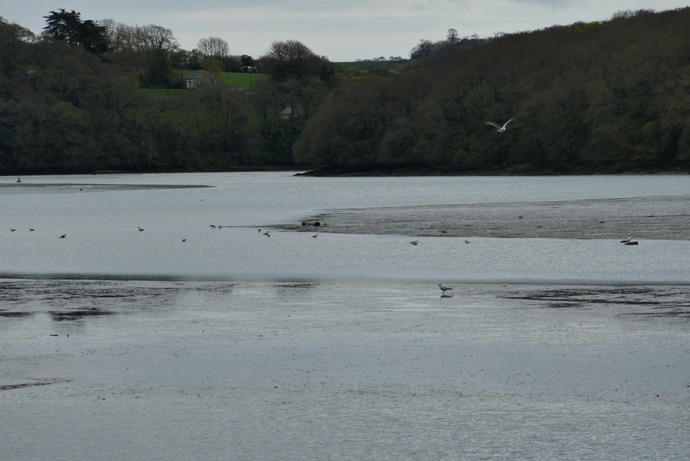My numbers went up, if we're interested in numbers, but only because I semi-accidentally hit 'share' rather than 'don't share' with one piece, and that put it out on Facebook. But the main takeaway from all that incredibly hard work (it's a given these days that we all claim to work “incredibly hard", right?) was … how very quickly everything submerges again. Remember Gibraltar? There was talk, a fortnight ago, about going to war with Spain over the Rock. Now, there isn't. [No, please, I don't have to mention the UK general election yet, do I?]
Nothing goes away – in the real world, Gibraltar's still mentioned in the EU draft; that carrier group is getting ever closer to the Korean Peninsula, or maybe it's arrived; the good doctor is still recuperating – except that it does go away. It's all still happening, nothing has happened to make any of it less (or more) panic-worthy, but the butterfly mind has moved on. There's footage to share on every one of last week's big stories – even helicopters circling round the carrier fleet now (then), filming – but the novelty's gone. We were really, really bothered; now we're ... not.
Life is a box set. Yes, there's a cliff-hanger at key moments in every episode, where the ad breaks go, but there are also the flat bits that follow. Occasional story-lines do endure beyond a single episode, but the detail gets lost: that vote last year has given us a homogeneous mass of “brexiteers” around whom the assumptions coalesce into a form of truth: they're disaffected manual workers with limited education and strong views on immigration. With the detail goes any sense that there might be more to know.
To borrow from Andy Warhol, it's as if we've adapted to the news cycle by taking everything seriously for fifteen minutes. Which is not the same as realising that it's really real. Maybe there's a group of scientists out there who could do a study on the panic-centres of the brain: our grand(?)parents responded to the Cuban Missile Crisis with this little grey bit here, and to the bit where Gary Cooper goes out alone in High Noon with this highlighted orange bit here. But we spark up the same pretty pattern whether it's the tree collapsing in Avatar or Trump dropping that bomb (remember?). It's as if there's the real world, in which things happen, and there's the expression of human nature that we mistake for reality.
Shall we try to explain this by imagining that we're animals adapting to an environment? Look around you. It's not just trees, buildings and building sites, advertising, crowds of strangers and traffic noise, it's 24-hour news, pervasive storytelling, too many inputs. It's everything including the "tone of voice" of the news. Everything is serious and everything has an equal weight. [I know; I'm continuing the theme from last week.] We've tuned ourselves into a mass - panic? hysteria? - into a mass *something genuinely felt, genuinely depressing/alarming but also fleeting; there'll be a word for it soon, probably long and composite and not in English* that feeds on whatever happens to be happening at any given moment. It's as temporary as fight or flight. We're already wired; we're taking another jolt from whatever headline comes next. Not the same as reacting appropriately to a surprising event. It's an adaptation to something pervasive in our environment.
The cumulative element, the build-up in the collective unconscious, is a function of that erosion of detail. We're left with an accelerated heart rate and a non-specific sense that everything's going wrong; that life's out of kilter; even, perhaps, a sense of grievance - a sense that there's an enemy. If there are “brexiteers” messing up the country; if (in that recurring but odd choice of verb) the EU is going to “punish” us for voting to leave; if Trump's every move is axiomatically bad and the adherents of a certain religious tradition are all terrorist sympathisers; it follows that there are “bad guys” working against us.
The picture is simplified: where there were shades of grey, there's now black and white.But who are these bad guys? In Crowds and Power, Elias Canetti writes: “It is always the enemy who started it, even if he was not the first to speak out, he was certainly planning it; and if he was not actually planning it, he was thinking of it; and, if he was not thinking of it, he would have thought of it.” That kind of enemy arises from our reaction - from the way we have adapted to the world around us - and is not some kind of a bizarrely omni-competent malign entity who has somehow contrived every news headline of the past month. We don't have enemies because we have enemies; we have them because that's how we see the world.
We're okay. We're still here. The sky outside the window is overcast, which messes up my punchline, but the tulips are in bloom and the birds are flying. If not today, then some other time, the sun will come up, and my various screens can all be switched off. Chop wood. Carry water.

